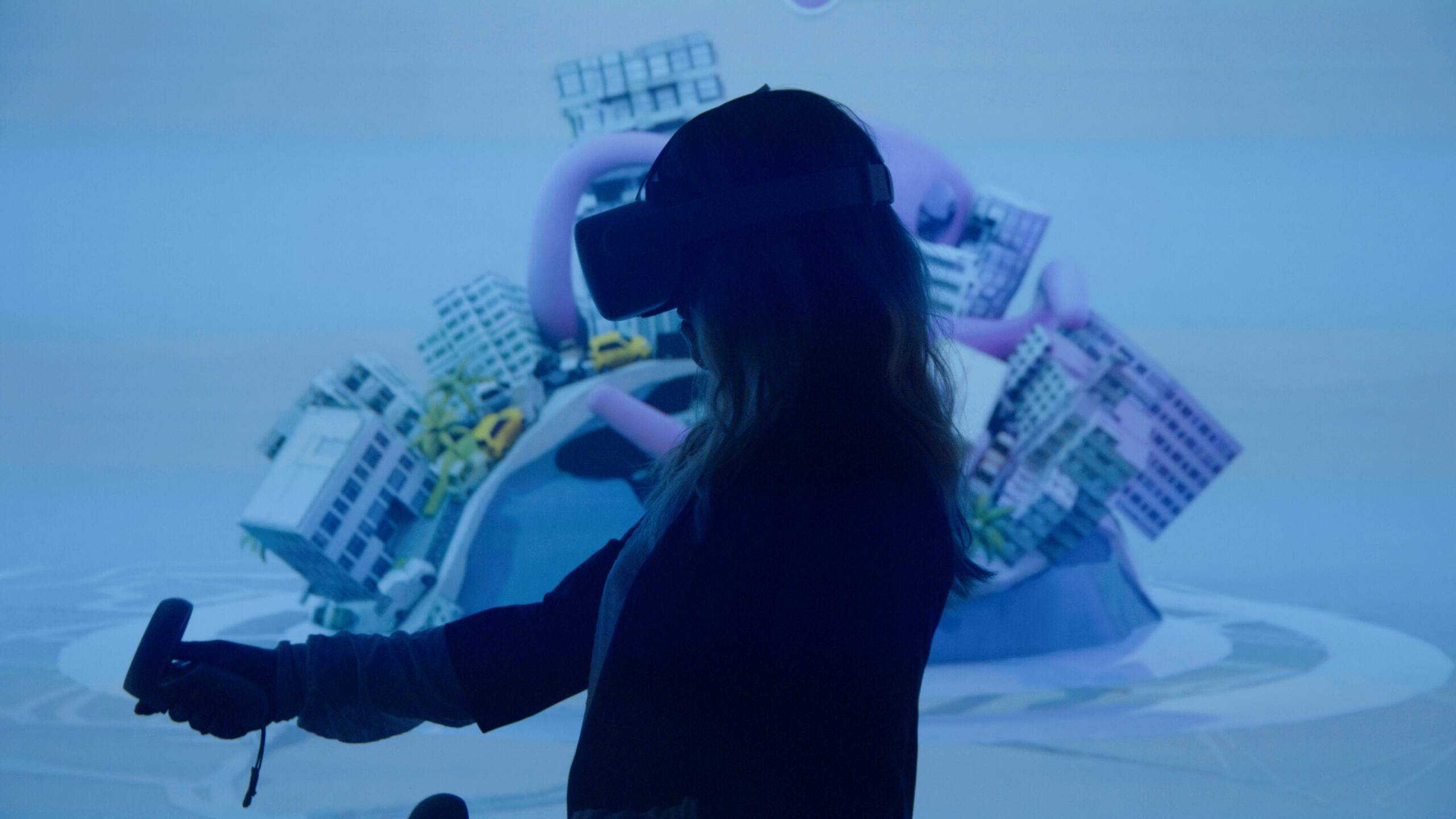That is the question Anagram, with funding from MyWorld’s Challenge Call led by Digital Catapult in collaboration with University of the West of England (UWE) School of Health and Social Wellbeing, are hoping to find answers to.
We are prototyping Feel Learn Do; an application consisting of a unique suite of tools that monitor, log, aggregate, and translate a user’s physiological and behavioural data as they experience a piece of narrative extended reality (XR).
Anagram create interactive and immersive experiences. Each one gets the audience to move, think, talk – and participate. Projects in recent years have included A Face to Open Doors, Messages to a Post-Human Earth, and the recently announced Ghosts of Solid Air which will premiere as part of the London Film Festival.
Feel
In 2021 Anagram released Goliath: Playing With Reality, a multi-award-winning VR experience narrated by Academy-Award-winning actress Tilda Swinton. Goliath tells the story of an online gamer, and his experience of schizophrenia, the health care system, gaming and connection.
When Goliath was shown to those in the mental health community who have lived experience of schizophrenia/psychosis we found a common response was wishing they could show it to the staff at the hospital to gain a better understanding of their condition. Anagram are now developing Inside Mental Health, a series of immersive experiences about other stigmatised conditions. Goliath and these experiences will be combined with Feel Learn Do to create an empathetic learning tool.
Learn
Inside Mental Health is a new way of delivering learning, building on evidence that shows that immersive experiences can deliver more impactful learning outcomes than traditional learning methods. We will be using immersive learning and developing training materials to create guided group experiences to give medical staff – in all roles – a package that is aimed at further developing empathy with patients with mental health conditions, in this case schizophrenia and psychosis.
To do this the experience has been broken down into 32 “chapters” as users undertake the experience their heart rate will be monitored, with increases to rate matched against these chapters.
Do
Users will individually, and simultaneously, view Goliath followed by a group reflective learning session. We are working with the University of the West of England (UWE) School of Health and Social Wellbeing and Oxford Health NHS Foundation to develop these sessions and inform a future piece of research which will use data from the testing of this product with healthcare professionals to look at how users react.
In these sessions, the biometric data gathered will be shared so that users can gain an understanding of how their body says they reacted to the experience which can be compared with their immediate emotional response. Users, and their groups, can use this data to further their discussions on how they feel about the experience, what they have learned about themselves, and to then reflect as a group on what they will do to implement this in the workplace and with their interactions with patients.
Feel, Learn, Done?
The Feel Learn Do toolkit prototype, funded by MyWorld, is the first step towards creating a suite of biometrics that can analyse how users experience XR, both as part of Inside Mental Health, and potentially as a standalone product that can be used across the XR community.
Once this prototype has been built and tested we will have the opportunity to see what we measure next, and how we present that information back to users. Anagram will be launching Impulse in early 2024, a mixed reality experience that looks at Attention Deficit Hyperactivity Disorder (ADHD), and once we have feedback from the lived experience community we will then be able to see where we take Feel Learn Do next, and how we grow Inside Mental Health into a suite of learning experiences that will help build empathy and destigmatise mental health issues at a time where more people need support with their mental health than ever before.
